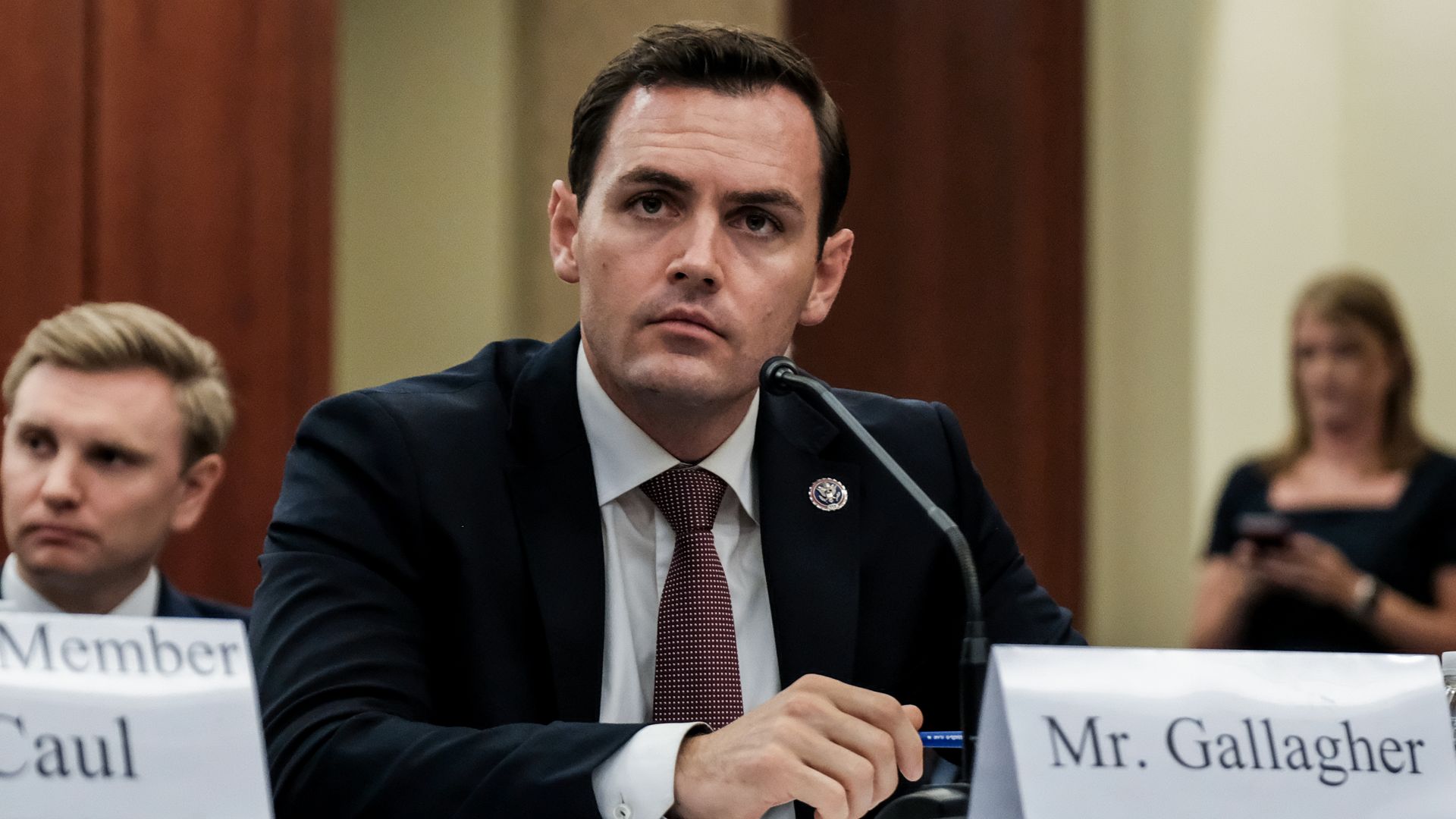China committee chair Mike Gallagher (R-Wis.). Photo: Michael A. McCoy/Bloomberg via Getty Images
The House China Select Committee this week will be war-gaming a scenario in which China invades Taiwan, Axios has learned.
Why it matters: It's a unique opportunity that will allow bipartisan members of Congress to walk through the potential challenges and identify the best legislative responses to deter and combat an invasion.
Driving the news: On Wednesday evening, bipartisan members of the House panel on China, led by Chair Mike Gallagher (R-Wis.), will step into the shoes of U.S. officials in a war-game simulation conducted by the Center for a New American Security, a Washington-based think tank focused on national security.
- The simulation will come just over a week after China's military conducted live-fire drills around Taiwan in response to Taiwanese President Tsai Ing-wen's transit through the U.S. this month.
- The simulation will give lawmakers a sense of how a Taiwan conflict would unfold, where U.S. military weaknesses may lie, and the consequences for international trade and American businesses.
The big picture: Gallagher — one of more than a dozen members of Congress who met with Tsai in California this month — is focused on shoring up the island's defenses.
- “We need to be moving heaven and earth to enhance our deterrence and denial posture so that Xi Jinping concludes that he just can’t do it,” Gallagher told the AP.
- That includes the delivery of $19 billion worth of defense equipment that Taiwan has already ordered and the expansion of training and other security assistance that could be included in the National Defense Authorization Act.
What they're saying: "War games really show what happens to our policies after we make contact with a competitor's strategies. It's like that famous Mike Tyson quote, 'Everyone has a plan until they get punched in the mouth,'" a source close to the committee tells Axios.
- "This, in conjunction with other things the committee's doing on Taiwan, really helps crystallize the policies needed and the actions that we need to take to deter an invasion."
The intrigue: In addition to the obvious military component, the war simulation will include economic dynamics that highlight the ways in which an invasion could affect critical infrastructure and impact the business community.
Source: Read Full Article
-
POLL: Should Liz Truss suspend the green energy levy to reduce bills?
-
Sunak told to solve migrant crisis now or the Tories ‘are finished’
-
Biden Administration Asks Supreme Court to Restore Broad Availability of Abortion Pill
-
Sturgeon humiliated as SNP’s social care plan ‘not enough’
-
Judge in Trump Jan. 6 Trial Is Known for Tough Capitol Riot Sentences


